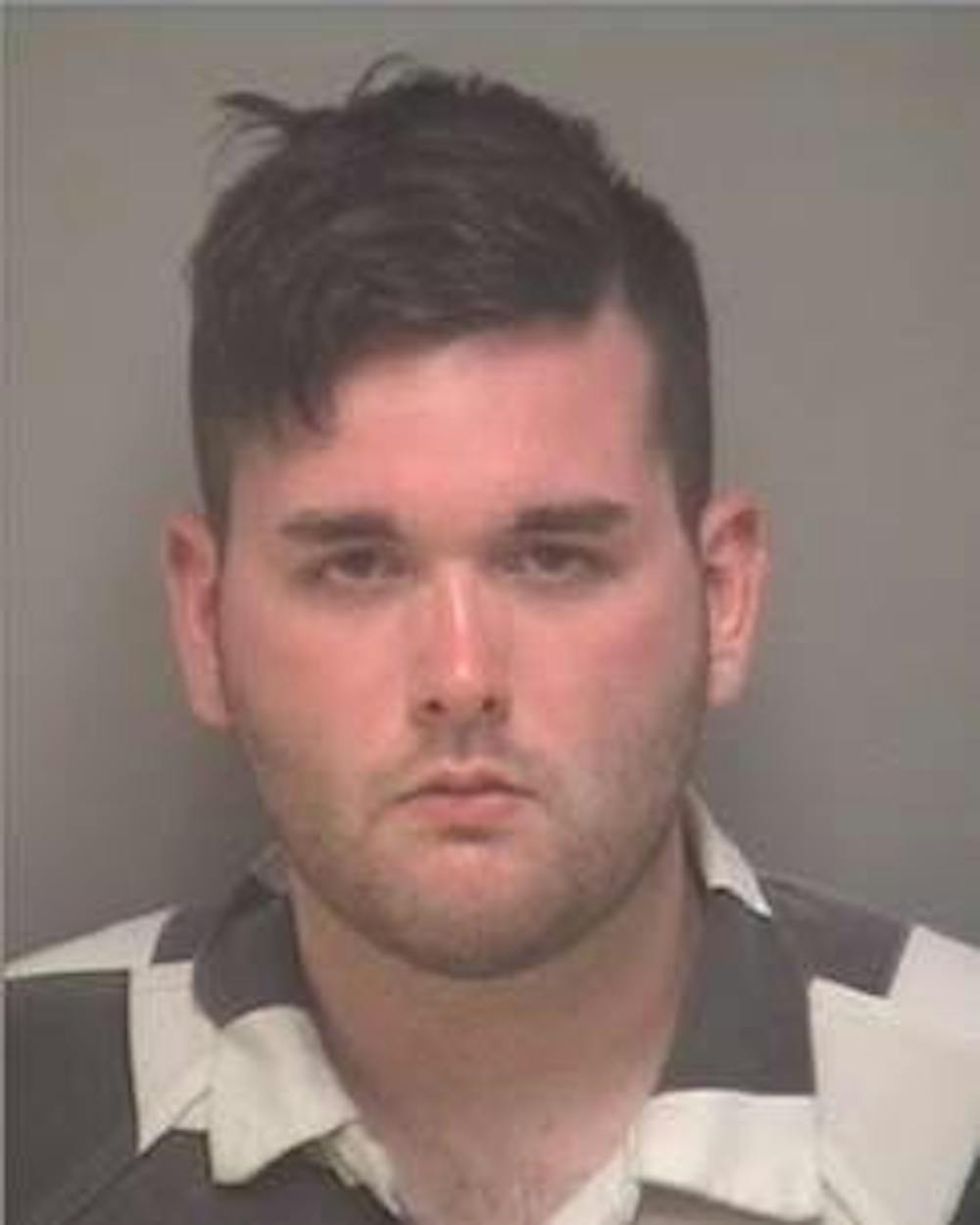A jury recommended James Alex Fields Jr. — the white nationalist who drove his car into a crowd of counter-protesters at the Unite the Right rally in downtown Charlottesville in August 2017 — be sentenced to life in prison Tuesday afternoon after jurors found him guilty of the first degree murder of Heather Heyer, eight counts of malicious wounding and one hit-and-run count for injuring dozens of others with his vehicle.
The jury delivered the recommended verdict at 12:20 p.m. after beginning deliberations Monday — recommending life in prison for first-degree murder, 70 years for each of five counts of aggravated malicious wounding, 20 years for each of three counts of malicious wounding and nine years for leaving the scene of a fatal crash. The overall sentence amounted to life plus 419 years in prison and $480,000 in fines.
Presiding Judge Richard E. Moore can impose a lesser punishment than the jurors recommended but is not allowed to increase the sentences, according to Virginia law.
Fields did not deny that he intentionally accelerated his Dodge Challenger into a group of counter-protesters at the rally. His lawyers contended he was afraid for his safety and acted to protect himself — which the jurors rejected.
The jurors also concluded that Fields did not meet Virginia’s legal definition for not guilty by reason of insanity, for which a defendant must show they did not understand the difference between right and wrong at the time of the offence or was too mentally unstable to control their actions.
The jury heard statements from Heyer’s mother, Susan Bro, and three surviving victims of the attack Monday.
“Almost all members of the family have been in … therapy, to push back the darkness,” Bro said. “My world exploded, and I can’t go back to the way it was.”
Fields was also separately indicted on 30 counts of federal hate crimes in June, though the trial date has yet to be determined. One count is for bias-motivated interference with a federally-protected activity which resulted in death — a charge which carries a maximum federal sentence of the death penalty.
Fields will be detained in a state penitentiary until his federal trial. Virginia does not allow parole for felonies committed after the mid-1990s.
After court was dismissed Tuesday, prosecuting attorney Joe Platania delivered a statement to the press, saying he hoped the trial’s outcome demonstrated “Charlottesville’s small part in rejecting and holding accountable those whose violent acts against others are fueled by hatred.”
“This trial and today’s outcome has been a very long time coming for the victims and their family members,” Platania said. “We’re unable to heal their physical injuries or bring Heather back. But we are able that they’re able to take some measure of comfort and solace from these convictions and sentences.”
Bro also addressed the media and crowd outside of the courtroom Tuesday.
“So many emotions, so many reactions, it’s really still hard to process,” Bro said. “So we move forward. We still have social justice work to do. … The things Heather died for, I’m not seeing a lot of progress in the last year and a half. We have won a victory today, but keep in mind that we must, must, must put direct action to our words.”
Moore said he will formally sentence Fields March 29.







